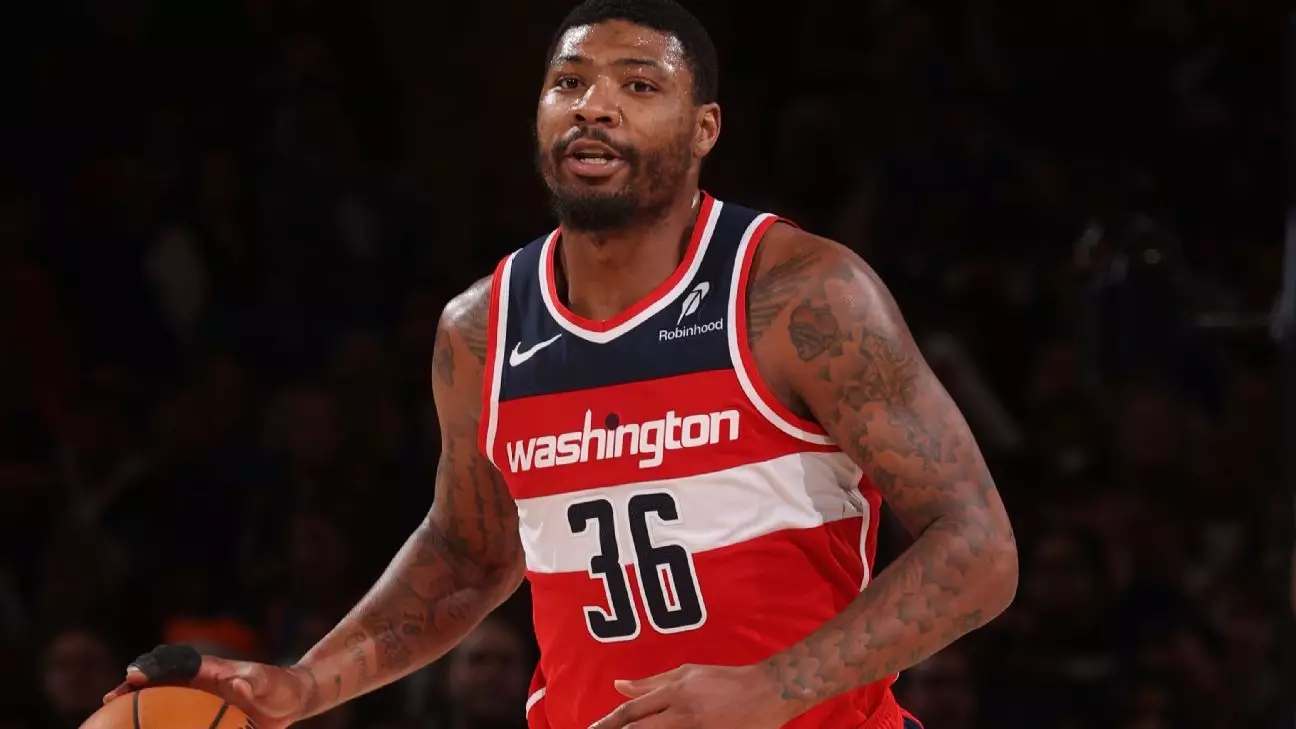In an era where sports have become interwoven with cultural identity and community pride, the behavior of fans during games has garnered increasing scrutiny. A recent incident involving Marcus Smart, the former Boston Celtics guard now playing for the Washington Wizards, exemplifies the fine line between enthusiastic fandom and unabashed disrespect. During a game at TD Garden, Smart confronted a fan who was heckling the Wizards’ bench, leading to a chaotic scene that brought to light a troubling aspect of sports culture—what happens when fan passion leads to unacceptable behavior.
Defining Boundaries: The Fan-Athlete Dynamic
Smart’s comments that the fan “crossed the line” resonate with many athletes who have felt the burden of scorching opinions from the very people who profess to support them. Heckling, while often seen as an integral part of the sports experience, can quickly evolve into harassment. This incident questions the boundaries of fan engagement and highlights that players are not just entertainment products; they are individuals with emotions, histories, and ties to the communities they represent. For Smart, a player who dedicated nine years to the Celtics, the heckler’s words were not just noise—they took a personal toll, particularly as he returned to a place that symbolized his formative years.
From Adoration to Aggression
The level of adoration that fans display can morph into aggression in the blink of an eye, undermining the respectful relationship that should exist between supporters and players. This shift from cheering to jeering demonstrates a troubling inherent aggression lurking within some segments of fan culture. The chant of “We want Marcus!” from the Celtics fans might have seemed harmless initially, but that sentiment turned sour in an instant. Passion for a team can easily spiral out of control and morph into disrespectful actions, sparking a critical discussion about the responsibilities of fans and the organizers of these events.
The Ripple Effects of One Incident
The incident doesn’t only affect Smart; it has wider implications for the sport. Players often have to mentally shield themselves not only from the pressures of competition but also from a toxic audience atmosphere that can eclipse even the most outstanding performances. Such events can lead to questions of mental health for athletes, who regularly face scrutiny from fans and the media alike. It’s essential for organizations, from the league down to individual teams, to foster a culture of respect—one where athletes are appreciated for their contributions without fear of being verbally assaulted.
A Dual Responsibility
The shared responsibility between fans and organizations to maintain a safe and welcoming environment is paramount. While it is understandable that fans invest emotionally in their teams, that passion should not come at the expense of human decency. Smart’s remarks should serve as a clarion call for fans to reflect on their behavior—he trivialized no one’s fervor but made it abundantly clear that respect must remain the foundation of any fan experience.
The Wizards’ coach Brian Keefe lauded Smart for his leadership in a young locker room, emphasizing that he has much to offer despite the negativity he encountered as a player. This duality of being someone revered yet targeted speaks volumes about the complexities athletes endure. It intertwines the narratives of personal sacrifice and public expectation into a single, fraught tapestry that defines modern athletics.
The Road Ahead
Looking forward, it is imperative that both fans and players advocate for a healthier dynamic within sports culture. Fan engagement should uplift athletes, not denigrate them. The responsibility lies with all parties involved—from the fan who cheers extravagantly to the organizations that sell the tickets—to cultivate an environment of mutual respect. As we move deeper into the season, let us hope that we learn from incidents like the one involving Marcus Smart, fostering a culture where compassion triumphs over chaos, and the excitement of the game is rooted in respect for those who play it.

Leave a Reply